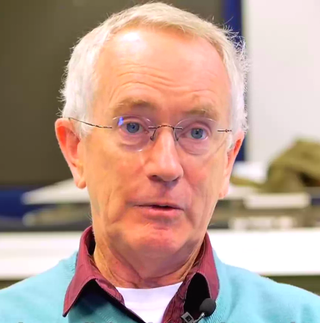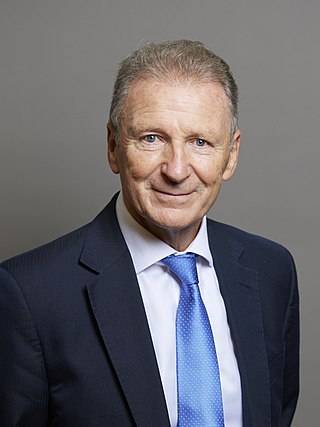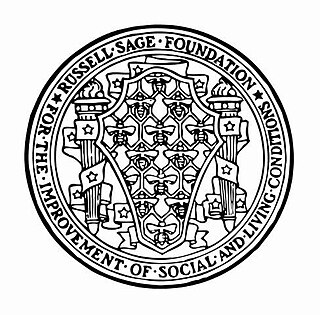
The Financial Times (FT) is a British daily business newspaper printed in broadsheet and published digitally that focuses on business and economic current affairs. Based in London, England, the paper is owned by a Japanese holding company, Nikkei, with core editorial offices across Britain, the United States and continental Europe. In July 2015, Pearson sold the publication to Nikkei for £844 million after owning it since 1957. In 2019, it reported one million paying subscriptions, three-quarters of which were digital subscriptions. The newspaper has a prominent focus on financial journalism and economic analysis over generalist reporting, drawing both criticism and acclaim. The daily sponsors an annual book award and publishes a "Person of the Year" feature.

Academic publishing is the subfield of publishing which distributes academic research and scholarship. Most academic work is published in academic journal articles, books or theses. The part of academic written output that is not formally published but merely printed up or posted on the Internet is often called "grey literature". Most scientific and scholarly journals, and many academic and scholarly books, though not all, are based on some form of peer review or editorial refereeing to qualify texts for publication. Peer review quality and selectivity standards vary greatly from journal to journal, publisher to publisher, and field to field.

Open access (OA) is a set of principles and a range of practices through which research outputs are distributed online, free of access charges or other barriers. With open access strictly defined, or libre open access, barriers to copying or reuse are also reduced or removed by applying an open license for copyright.

Elsevier is a Dutch academic publishing company specializing in scientific, technical, and medical content. Its products include journals such as The Lancet, Cell, the ScienceDirect collection of electronic journals, Trends, the Current Opinion series, the online citation database Scopus, the SciVal tool for measuring research performance, the ClinicalKey search engine for clinicians, and the ClinicalPath evidence-based cancer care service. Elsevier's products and services also include digital tools for data management, instruction, research analytics and assessment.

Steve Keen is an Australian economist and author. He considers himself a post-Keynesian, criticising neoclassical economics as inconsistent, unscientific and empirically unsupported. The major influences on Keen's thinking about economics include John Maynard Keynes, Karl Marx, Hyman Minsky, Piero Sraffa, Augusto Graziani, Joseph Alois Schumpeter, Thorstein Veblen, and François Quesnay. Hyman Minsky's financial instability hypothesis forms the main basis of his major contribution to economics which mainly concentrates on mathematical modelling and simulation of financial instability. He is a notable critic of the Australian property bubble, as he sees it.
The post-autistic economics movement, or movement of students for the reform of economics teaching, is a political movement that criticises neoclassical economics and advocates for pluralism in economics. The movement gained attention after an open letter signed by almost a thousand economics students at French universities and Grandes Écoles was published in Le Monde in 2000.

Bruno S. Frey is a Swiss economist and visiting professor for Political Economy at the University of Basel. Frey's research topics include Political economy and Happiness economics, with his published work including concepts derived from Psychology, Sociology, Jurisprudence, History, Arts, and Theology.
The Royal Economic Society (RES) is a professional association that promotes the study of economic science in academia, government service, banking, industry, and public affairs. Originally established in 1890 as the British Economic Association, it was incorporated by royal charter on December 2, 1902. The Society is a charity registered with the U.K. Charity Commission under charity number 231508.

Augustine Thomas O'Donnell, Baron O'Donnell, is a former British senior civil servant and economist, who between 2005 and 2011 served as the Cabinet Secretary, the highest official in the British Civil Service.

The Russell Sage Foundation is an American non-profit organisation established by Margaret Olivia Sage in 1907 for “the improvement of social and living conditions in the United States.” It was named after her recently deceased husband, railroad executive Russell Sage. The foundation dedicates itself to strengthening the methods, data, and theoretical core of the social sciences in order to better understand societal problems and develop informed responses. It supports visiting scholars in residence and publishes books and a journal under its own imprint. It also funds researchers at other institutions and supports programs intended to develop new generations of social scientists. The foundation focuses on labor markets, immigration and ethnicity, and social inequality in the United States, as well as behavioral economics.

Hans-Werner Sinn is a German economist who served as President of the Ifo Institute for Economic Research from 1999 to 2016. He currently serves on the German economy ministry’s advisory council. He is Professor Emeritus of Economics and Public Finance at the University of Munich.

Albert Mansbridge, CH was an English educator who was one of the pioneers of adult education in Britain. He is best known for his part in co-founding the Workers' Educational Association (WEA) in England in 1903, serving as its first secretary until 1915.

The Kiel Institute for the World Economy is an independent, non-profit economic research institute and think tank based in Kiel, Germany. In 2017, it was ranked as one of the top 50 most influential think tanks in the world and was also ranked in the top 15 in the world for economic policy specifically. German business newspaper, Handelsblatt, referred to the institute as "Germany's most influential economic think tank", while Die Welt, stated that "The best economists in the world are in Kiel".

Joel Mokyr is a Netherlands-born American-Israeli economic historian. He is a professor of economics and history at Northwestern University, where he has taught since 1974; in 1994 he was named the Robert H. Strotz Professor of Arts and Sciences. He is also a Sackler Professorial Fellow at the University of Tel Aviv's Eitan Berglas School of Economics.
The pluralism in economics movement is a campaign to change the teaching and research in economics towards more openness in its approaches, topics and standpoints it considers. The goal of the movement is to "reinvigorate the discipline ... [and bring] economics back into the service of society". Some have argued that economics had greater scientific pluralism in the past compared to the monist approach that is prevalent today. Pluralism encourages the inclusion of a wide variety of neoclassical and heterodox economic theories—including classical, Post-Keynesian, institutional, ecological, evolutionary, feminist, Marxist, and Austrian economics, stating that "each tradition of thought adds something unique and valuable to economic scholarship".

Dambisa Felicia Moyo, Baroness Moyo is a Zambian-born economist and author, known for her analysis of macroeconomics and global affairs. She has written five books, including four New York Times bestsellers: Dead Aid: Why Aid Is Not Working and How There Is a Better Way for Africa (2009), How the West Was Lost: Fifty Years of Economic Folly – And the Stark Choices that Lie Ahead (2011), Winner Take All: China's Race for Resources and What It Means for the World (2012), Edge of Chaos: Why Democracy Is Failing to Deliver Economic Growth – and How to Fix It (2018), and How Boards Work: And How They Can Work Better in a Chaotic World (2021).
Real-World Economics Review is a peer-reviewed open access academic journal of heterodox economics published by the "Post-Autistic Economics Network" since 2000. Since 2011 it is associated with the World Economics Association. It was known formerly as the Post-Autistic Economics Review and the Post-Autistic Economics Newsletter. Previous issues are archived on its website. Two sister journals from the same publisher are Economic Thought and World Economics Review.
The National Coalition of Independent Scholars (NCIS) is the principal professional association for independent scholars. Incorporated in the USA but now with an international membership, NCIS is a non-profit organization that supports independent scholars, defined as someone who is actively pursuing knowledge in an academic or scientific discipline, without secure employment in or support from an academic institution. Independent scholars include unaffiliated scholars, adjunct professors and part-time faculty, graduate students, research professionals, artists, and curators. NCIS enables scholars working in the arts, humanities, social sciences and STEM fields to access and share resources, such as library access, and support, which are typically unavailable to researchers who are not affiliated with a university or other institution.
Economic Thought is a biannual peer-reviewed open access academic journal. It was established in 2012 and is published by the World Economics Association.
The European Historical Economics Society (EHES) is Europe's leading research organization and learned society dedicated to the study of economic history. Founded in 1991, the EHES supports academic research within the discipline of economic history; organizes an annual conference; publishes regular working papers; and provides resources for early- and mid-career scholars. The EHES promotes "the advancement of education in European economic history through the study of European economies and economic history." The current president of the EHES is Pierre-Cyrille Hautcœur, a French economist and professor of economics at the Paris School of Economics.













